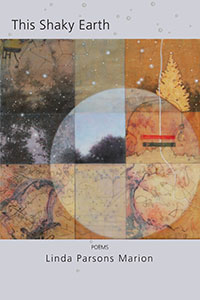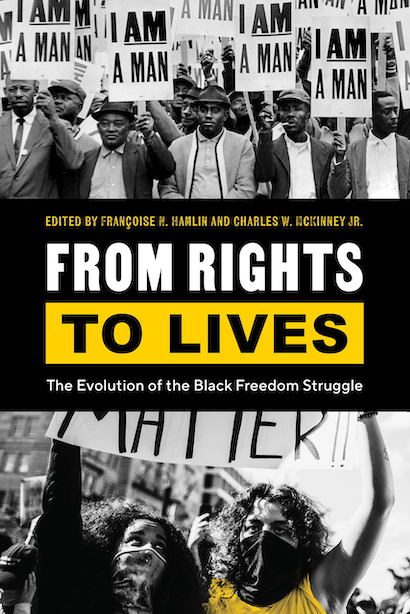Garden of Life
The poems in Linda Parsons’s This Shaky Earth whisper elusive truths of the heart
Linda Parsons’s This Shaky Earth takes its material from the prosaic and the deeply personal. Gardening, cooking, and family life provide much of the imagery, and the setting never wanders far from Parsons’s native territory of East Tennessee. But there’s nothing narrow about these poems. They’re rich with all the mystery and complexity of human feeling. Love is often a difficult path here, and the sensual pleasures of home and table come heavily weighted with bittersweet—and sometimes frankly sad—memories.
 Parsons (who has dropped “Marion,” the surname she used when This Shaky Earth went to press) is a poet firmly and unapologetically attached to her home soil, and that love becomes literal in a poem like “Gardenalia,” a distinctly unsentimental celebration of pruning and weeding in which the garden serves as a spiritual guide:
Parsons (who has dropped “Marion,” the surname she used when This Shaky Earth went to press) is a poet firmly and unapologetically attached to her home soil, and that love becomes literal in a poem like “Gardenalia,” a distinctly unsentimental celebration of pruning and weeding in which the garden serves as a spiritual guide:
The ground you seek to tame, pocked with shards
and rare metals, is unknowable as heaven
raining on foolish ways. Quench desire in all
that rises and sways beyond cause or will.
More often, Parsons’s garden provides a place for revisiting memories, as well as a metaphor for the continual resurgence and withering of the past. “Ignorant of full vegetable / potential, I’ve overplanted my first year” she writes in the first stanza of “Huge,” lamenting a wild overabundance of chard. In the second and final stanza, those enormous leaves, “big as life,” become stand-ins for “uneasy ghosts / of violence and argument that supplanted / my childhood,” which she can cut down with “the right knife or flick of the wrist.”
Parsons’s work has a strong tendency toward this kind of clear turn from the homely and routine to the deeply heartfelt, spinning the straw of daily life into metaphor before your eyes. In “Hunger,” the “hoarded leavings” of the kitchen, saved for compost to feed garden soil, become the emotional debris of her own life, which she will “let lie until the stew / boils down, coats the underworld in primordial / cream.” “Ode to a Turkey Brown Fig” chronicles the effort to encourage a barren tree to produce, but the final lines are clearly about more than the frustrated desire for sweet fruit:
[…] With Eve’s hard
knowledge of the garden compromised, I stand
nakedly figless, another summer yet to swoon.
Clothed in lust undisguised, spurned anew.
 There’s a great deal of grappling with the personal past in This Shaky Earth. In multiple poems Parsons revisits memories of a complicated childhood. “On Russell” is a literal revisiting—a return to the home where “I gathered dusk / and corn husks with my grandmother.” “Housekeeping of the Soul” recalls her parents’ divorce and herself as a “pale shade of child” who “waits by the window for Mama / to step off the 5:40 bus.” The “slanted and bumpy” union of her parents and its “dazed unraveling” serve as counterpoint to recurring images of the bucolic pleasures provided by grandparents.
There’s a great deal of grappling with the personal past in This Shaky Earth. In multiple poems Parsons revisits memories of a complicated childhood. “On Russell” is a literal revisiting—a return to the home where “I gathered dusk / and corn husks with my grandmother.” “Housekeeping of the Soul” recalls her parents’ divorce and herself as a “pale shade of child” who “waits by the window for Mama / to step off the 5:40 bus.” The “slanted and bumpy” union of her parents and its “dazed unraveling” serve as counterpoint to recurring images of the bucolic pleasures provided by grandparents.
Like many Southerners, Parsons is only a generation or two removed from rural or semi-rural life and feels that history as a kind of spiritual legacy. Pastoral rootedness seems synonymous for her with childhood innocence, and its loss haunts her in “Back to the Garden,” where she acknowledges the impossibility of true return:
If you walked them again, the backyards
of great-aunts who sent you to pick Big Boys
staked on bamboo, the soil would be foreign,
homeplace subdivided, shutters taken down.
Parsons relies heavily on the past as platform for her work, but she’s not stuck there, nor is she nostalgic. On the contrary, the dynamic in this collection is toward reconciliation with the present and the fast-approaching future for a woman well into the second half of life. “Midlife harvests what rises to my touch,” she writes in “Imperfect Fruits,” looking with the eyes of experience toward “another spring, another try.” In “Reluctance” she considers her own mortality during a visit to her garden, “where all we know / of this black-eyed earth is perishing.”
The poems in This Shaky Earth are subtle, gently evoking ordinary experience while revealing elusive truths of the heart. With patient attention, they unfold like modest flowers, the sort whose full beauty is best seen close-up.

Maria Browning is a fifth-generation Tennessean who grew up in Erin and Nashville. A graduate of Mount Holyoke College, she has attended the Clothesline School of Writing in Chicago, the Moss Workshop with Richard Bausch at the University of Memphis, and the Sewanee Writers’ Conference. She lives in White Bluff.


